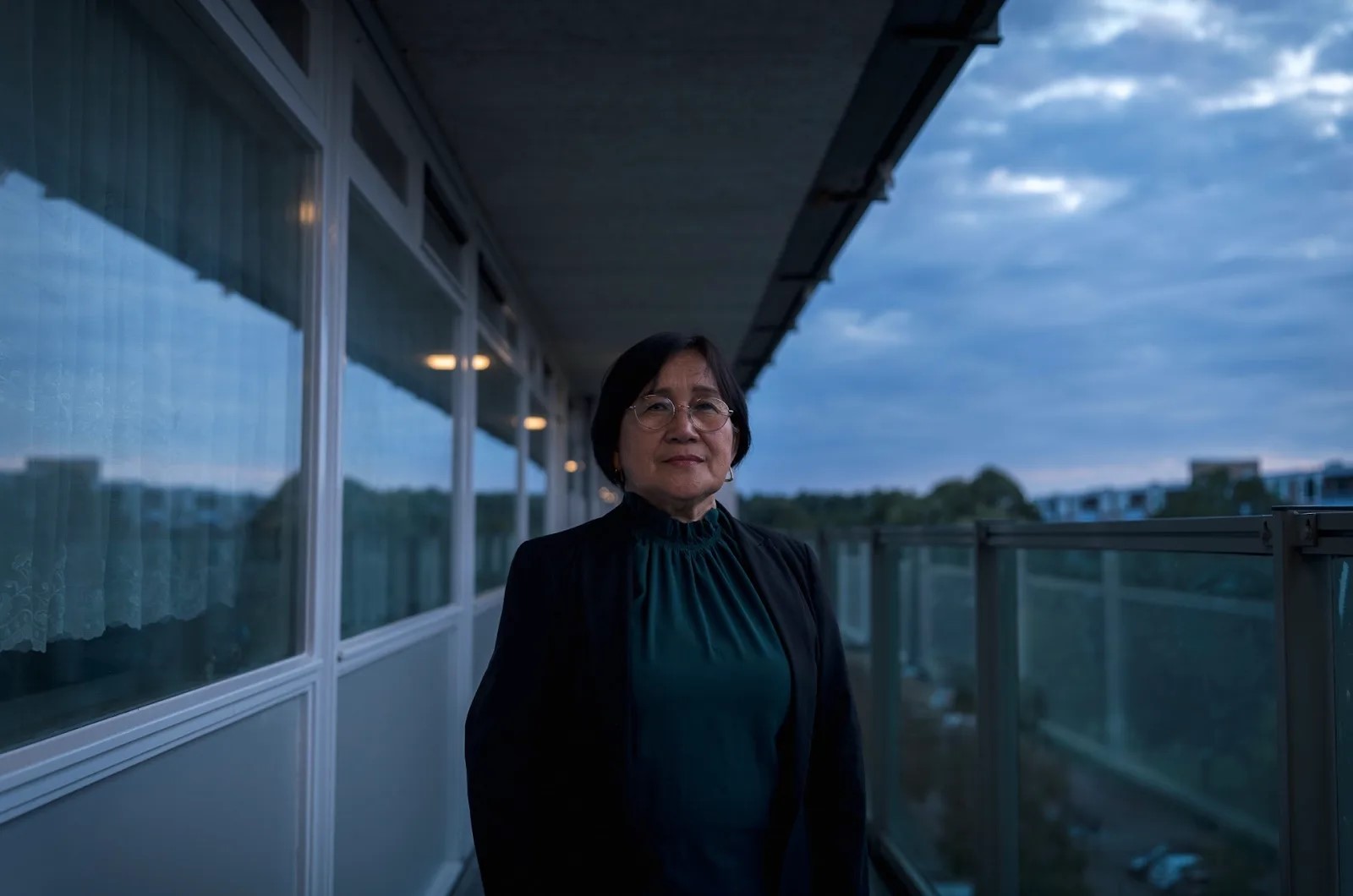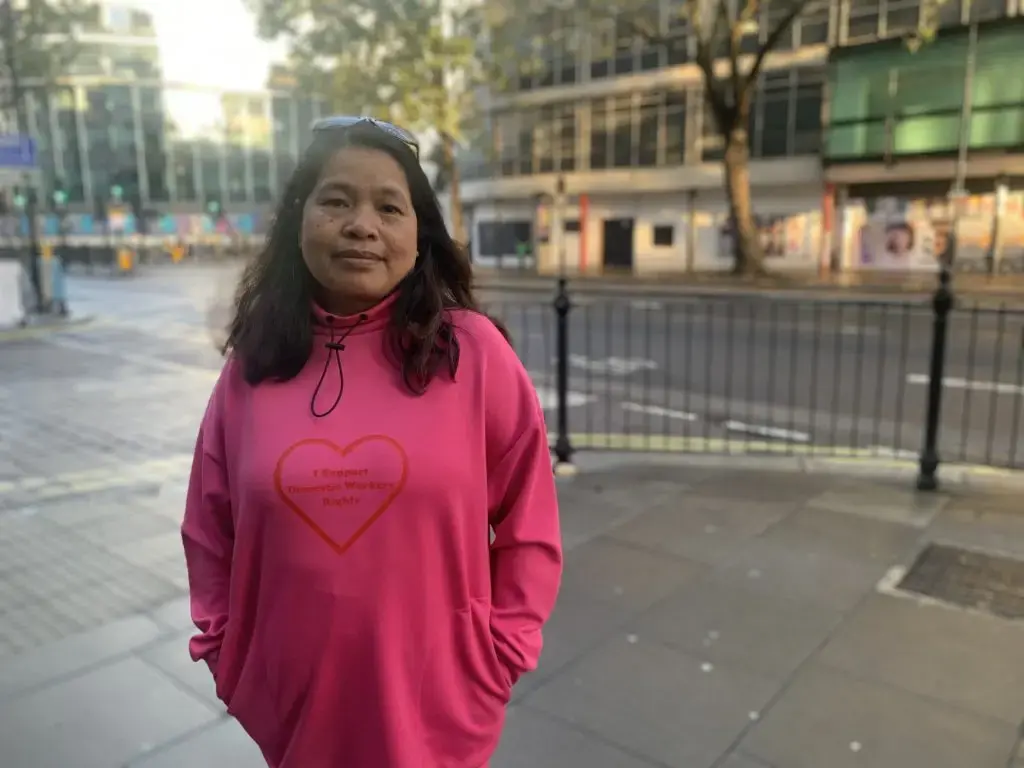UK: Survey of 200 Migrant Domestic Workers Reveals Extent of Employer Abuse
Country:
UNITED KINGDOM
FEBRUARY 9, 2024
Author:
Ana P. Santos
GRANTEE
PULITZER CENTRE

ENGLISH
Project
Immunity and Impunity: How Diplomats Get Away With Exploiting Domestic Workers
Country:
UNITED KINGDOM
FEBRUARY 9, 2024
Author:
Ana P. Santos
GRANTEE
PULITZER CENTRE

ENGLISH
Project
Immunity and Impunity: How Diplomats Get Away With Exploiting Domestic Workers
Migrant domestic workers in the UK reported deplorable working conditions, including nearly continuous 24-hour work days, meager wages and various forms of abuse, in a survey.
Asurvey of 200 migrant domestic workers conducted by the advocacy group Voice of Domestic Workers and the London School of Economics and Political Science revealed that nearly all of the respondents reported working around the clock, earning a mere 52 pence (less than a single euro) per day.
More than 80% reported being denied regular meals, with nearly the same number claiming surveillance by their employers and excessive restrictions on leaving the house. More than half reported physical abuse and roughly 30% reported instances of sexual harassment or abuse.
The respondents of the survey were migrant domestic workers in the UK, mostly hailing from the Philippines, India and Indonesia.

As a nonprofit journalism organization, we depend on your support to fund more than 170 reporting projects every year on critical global and local issues. Donate any amount today to become a Pulitzer Center Champion and receive exclusive benefits!
About 79% of the employers were from Arab states, such as Saudi Arabia and Qatar, followed by China and the UK. About 80% of the employers implicated in the reports of exploitation had residences in Greater London’s most affluent neighborhoods of Kensington, Knightsbridge, Belgravia and Mayfair.
According to statistics provided by the Home Office, more than 18,000 Overseas Domestic Worker (ODW) visas were issued in 2022.
The ODW Visa allows individuals from overseas to work as domestic workers in private households. Originally introduced to provide better protections and rights for domestic workers, the visa was substantially amended in 2012.
Trapped with abusive employers
Marissa Begonia, the founder of the Voice of Domestic Workers, told InfoMigrants that the exploitative working conditions persist due to those 2012 amendments, which restricted domestic workers from changing employers.
Under this revision, the residency status of a migrant domestic worker remained valid only as long as they were employed, up to a maximum of six months without a possibility of renewal. This means that in cases of abuse, the domestic worker could change employers -- but would still not be allowed to renew their visa.
“The right to change employer within a six-month short period is useless without allowing them to renew their visas,” said Begonia.

Before establishing migrant rights group, Voice of Domestic Workers, Marissa Begonia was a domestic worker who experienced abuse by various employers. Image by Ana P. Santos.
Begonia, who is a single mother and former domestic worker, experienced abuse and exploitation at the hands of her employers across Singapore and Hong Kong before coming to the UK.
"This survey shows that the changes in the ODW have made life harder for domestic workers. By not allowing them to renew their visa, this opens them up to abuse and exploitation," Begonia said.
Lack of government protections
Despite the government's introduction of safeguards such as mandating written contracts signed by both the employer and worker and requiring UK authorities to provide workers information about their rights before they arrive, the survey indicates their loose implementation.
Only 33% signed a contract before arriving in the UK. Additionally, only 15% received a leaflet explaining their employment rights during the interview process, highlighting a lack of information and understanding.
Nothing but band-aid solutions
Domestic workers have little recourse but to attempt to flee from their employers. Florence Yilmaz, co-founder of the Filipino Domestic Workers Association, told InfoMigrants that the organization rescued over 50 distressed domestic workers last year alone.
“When we rescue these women, they are mentally and emotionally distraught. Their main concern is to escape. They cannot yet think of what comes after,” said Yilmaz.
According to Yilmaz, the aftermath involves an encounter with the tedious and cumbersome National Referral Mechanism (NRM) system, a framework for identifying and referring potential victims of modern slavery and ensuring they receive the appropriate support.
“The NRM is nothing but a band-aid solution. It was meant to pacify domestic workers for the removal of the ODW. If the government is serious about protecting human rights, especially those of domestic workers, they need to bring back the ODW," said Yilmaz.
Begonia, whose organization has also facilitated clandestine escape from employers, agreed.
"The NRM does not provide appropriate support to domestic workers caught in trafficking situations. Decisions take a long time, leaving workers feeling hopeless and forgotten by the system that should help them. Some domestic workers fail to pass the NRM assessment or simply do not qualify, ending up undocumented."
According to five years of client data from Kalayaan, a charity supporting migrant domestic workers through the NRM process, the median waiting time between a reasonable decision (where the Home Office classifies someone as a victim of human trafficking) and a conclusive decision (when the Home Office accepts or rejects the case) is 786 days -- more than two years.
“It's been more than a decade since migrant domestic workers were stripped of their rights," said Begonia about the regressive changes made in the Overseas Domestic Worker visa.
"We have enough evidence that this NRM system doesn't work for domestic workers. Domestic workers are the backbone of society, enabling other workers to contribute to the economy. Domestic workers, who care for children, the elderly, the disabled, and households, should be treated with respect and granted better rights and protection," Begonia said.
No comments:
Post a Comment